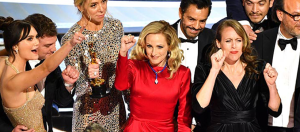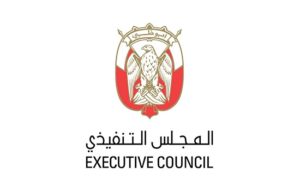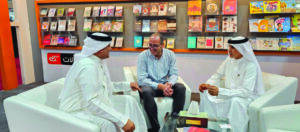The third day of the annual Culture Summit Abu Dhabi, which is being under the theme “Setting Goals and an Agenda for the Year Ahead”, saw four hundred delegates from 80 countries continue to discuss the concrete role that culture can play in addressing global challenges, which include the empowerment of women, poverty, climate change and combating extremism.
The third day of Culture Summit 2018 began with a panel discussion entitled “Arts and Arts-Related Education in Marginalized and At-Risk Communities”, featuring Zaid Souqi, founder, The Orenda Tribe; T. Lulani Arquette, President/CEO, Native Arts and Cultures Foundation; Lauri Fitz-Pegado, partner, The Livingston Group; Sanjayan Srikanthan, Acting Senior Vice President and Executive Director, International Rescue Committee; and moderator Alia Malek, journalist and author of The Home That Was Our Country: A Memoir of Syria. This unique discussion not only gave an overview of the work the panelists have done in at-risk communities, but provided the tools for others to do such work themselves.
The second panel – “Arts Education and Cultural Preservation”– saw Tom Standage, deputy editor, The Economist moderating a discussion with individuals whose organisations have sought to secure cultural traditions while creating best practices to use for the future. The speakers included Abdul Waheed Khalili, Director, Turquoise Mountain Institute for Afghan Art; George Richards, Head of Heritage, Art Jameel; and Lori Taylor, Director of Education, Silkroad.
In “Using the Arts to Combat Extremism”, moderator Nivine Afiouni of Sky News Arabia led a conversation with Manny Ansar, Executive Director, Festival in the Desert; Maqsoud Kruse, Executive Director, Hedayah; and Karim Wasfi, founder, Peace Through Global Arts Foundation, on how global arts communities have instigated important changes and how communities and nations are tackling peacebuilding, activism, and community-building efforts to combat violent extremism.
Karim Wasfi, founder, Peace Through Global Arts Foundation, said: “My goal was to use soft power to help people in conflict areas prevent terrorism and extremism. But we must recognise here that cultural diplomacy is a two-sided act shared between the artist and the audience, and in this context, we witness how its role transcends the concept of soft power, and becomes a catalyst for change that transforms current drifts and approaches with the use of communication and cultural exchange.”
Rashid bin Shabib, Advisor, Ministry of Foreign Affairs and International Cooperation, moderated “Case Study: The Transformative Role of Art and Culture in the Gulf Region”, which considered how the Gulf’s robust support of its traditional heritage, combined with its thriving contemporary arts scene, makes the region a model for both the preservation and advancement of arts and culture. Bin Shabib was joined by panellists Omar Al Shunnar, CEO and founder, Jsoor; Sofana Dahlan, founder, Tashkeil; and Mohammed Hafiz, Vice Chairman of the Saudi Art Council and co-founder, Athr Gallery, who have all played a leading role in developing the regional art scene.
The lunch session was a conversation between special guest Lucy Alibar, playwright and actress, and Philip Himberg, artistic director, Theatre Lab, The Sundance Institute, followed by excerpts from Ms. Alibar’s work, and a performance of Najmaat led by Sherine Tohamy.
A special afternoon session was held at the recently launched Louvre Abu Dhabi, which saw Carla Dirlikov Canales, CEO and founder, TCP Ventures, moderating the discussion “Art and Universal Humanity: Exploring the Themes of Louvre Abu Dhabi” with Aakash Odedra, choreographer; Tania Le?n, composer and conductor; Jeroen Koolhaas and Dre Urhahn, artists; and Doris Sommer, Director of the Cultural Agents Initiative, Harvard University.
Performances throughout the third day of Culture Summit featured works by Volker Gerling, Flipbook creator and storyteller, and “Where Can I Find Someone Like You”, a one-woman show written and performed by Raeda Taha. The “Unexpected Collaboration” performance of the day was between American guitarist Gyan Riley, and Mexican vocalist Magos Herrera.
The Workshop meetings continued, exploring how policy, technology/new media, artists, arts institutions, and philanthropy communities can create new and effective collaborations to address issues worldwide.
Additionally, over 50 artists of the Artists Incubator programme resumed their meetings which aim to identify new creative collaborations.
The evening concluded with a dinner reception at the Four Seasons Hotel, including the panel discussion “Making a Better World: The Arts, Media and Positive Social Change” and a special screening of the Sundance Prize-winning film “Kailash”. Panel moderator Fiammetta Rocco, chief culture writer, The Economist, was joined by Kailash Satyarthi, winner of the Nobel Peace Prize; Derek Doneen, director, “Kailash”; Keri Putnam, Executive Director, The Sundance Institute; and Paul Federbush, Feature Film Program, The Sundance Institute.
Running from 8th – 12th April, Culture Summit Abu Dhabi 2018 gathers global leaders to discuss the ways that culture can address the world’s most pressing challenges and be a force for positive change, with the theme of “Unexpected Collaborations: Forging New Connections Between Heritage and Innovation, Near and Far, Creativity and Purpose”. The agenda will conclude with two final panel discussions and closing performances under the theme “Celebrating the Fruits of Unexpected Collaborations”. It is an invitation-only event, but will be live-streamed for the public exclusively on the Culture Summit website and the Abu Dhabi Culture mobile app.




